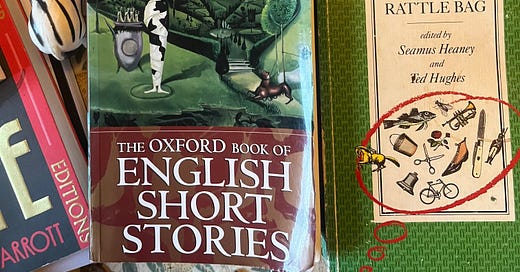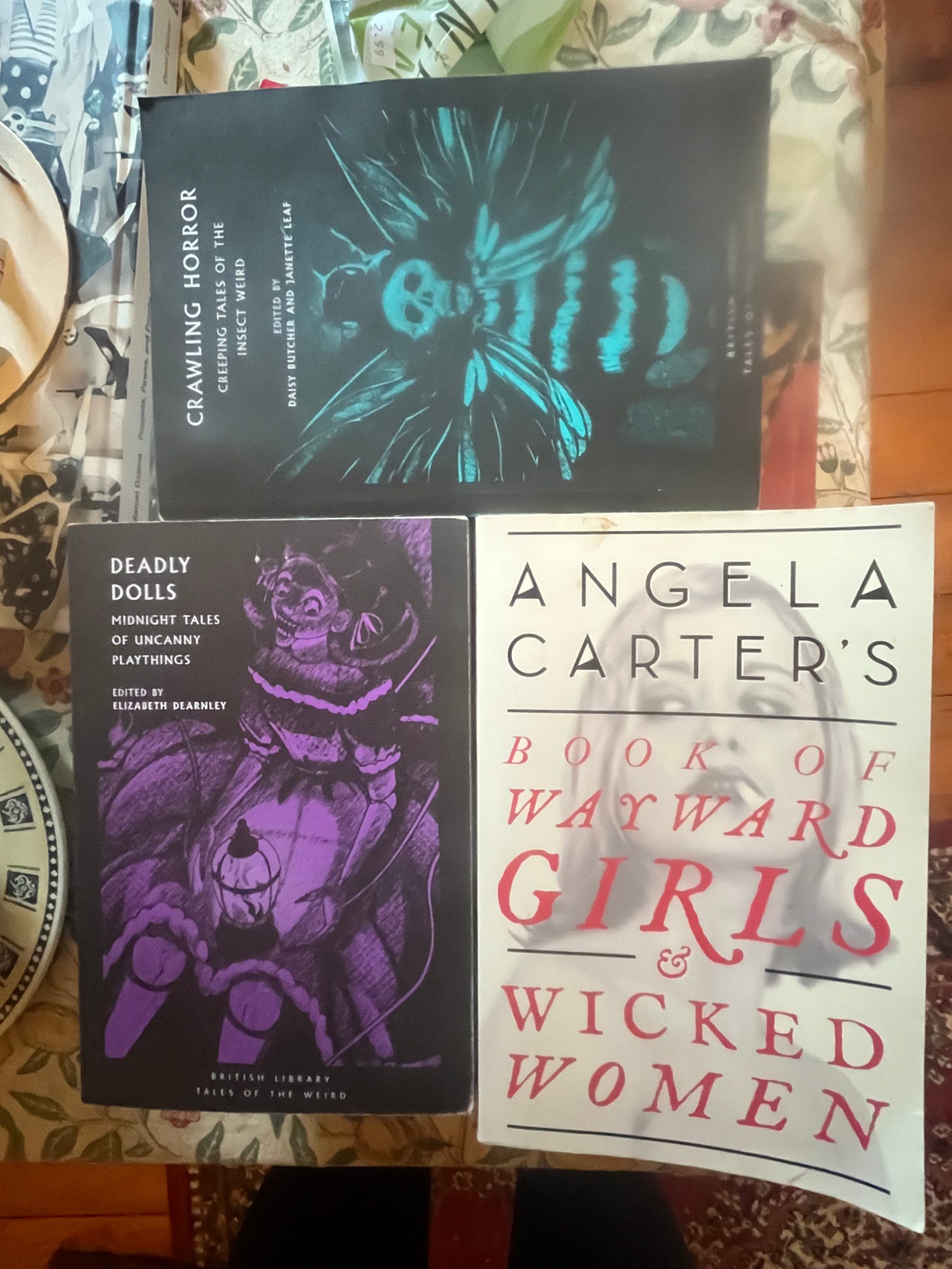I had a story from The Doll’s Alphabet included in the anthology Deadly Dolls, edited by Elizabeth Dearnley in the British Library Tales of the Weird Series, which got me thinking about which anthologies I love and constantly return to. It is a form which had its golden era in the late 20th century, and are perhaps less popular now because it highlights two undervalued forms: the short story and the poem. These days, they often come as either Prize wining compilations ie The BBC National Short Story Award, or ‘best of’ like Best British Short Stories of 2021, but I think these are the least interesting anthologies. I like ones which mix the old and the new, and ones curated by particular people as a testament to their strange and interesting taste. I don’t like ones of someone merely choosing their friends and contemporaries, of the present placing itself separately as exceptional or ones with a too general theme like ‘love’ or ‘cats’ -( creepy insects however, is an interesting one.) or one filled with pieces which were over anthologised. The good anthology has dug out and rediscovered treasures sat next to old familiars. .There are fewer of these published today, because of the general decline of the literary fiction author, the poet and the general faffiness of estates and rights when it perhaps won’t sell many copies in our market driven publishing world ( ones solely stuffed with the out of print aren’t fun either). I don’t like the idea of slices of Jane Austen novels in an anthology aimed at increasingly illiterate students but that is not to say a piece from a novel can’t be extracted to exist on it own ( my dream anthology would include a chapter from Sisters by a River by Barbara Comyns) Few literary authors are famous enough to warrant editing an anthology with their name as a selling point, but if I love an author’s work, I will read almost anything they recommend. There are tons of books out there, and it’s a path to finding more books I will enjoy, an anthology can help you test the waters of new work. I think every author should talk about books and pieces they love. Two favourites from my shelf are the Oxford Book of English Short Stories, edited by A.S Byatt (1998) and The Rattlebag edited by Seamus Heaney and Ted Hughes(1982). A.S Byatt’s includes bangers like My Flannel Knickers by Leonora Carrington and The Beauty of the Dawn Shift by Rose Tremain.
It is a way of discovering new authors( Rose Tremain) and having easy repeated access to stories you love, of reading the stories in relation to each other and examining why Byatt thinks they are interesting and significant- it is like a mini class by her you can take again and again, a precious piece of her thoughts and opinions after her death .The Rattlebag is a good one to kickstart a habit of reading a poem a day. It has everything from Wordsworth to old anon poems translated from Yoruba, Gaelic and Serbian. Today, I read Bog-Face by Stevie Smith and an anon old English poem which goes
“There was a man and he was mad
And he ran up the steeple,
And there he cut his nose off
And flung it at the people.”
Some other ones I think are really good are: Wayward Girls and Wicked Women edited by Angela Carter, The Penguin Book of the British Short Story by Philip Hensher, That Glimpse of Truth selected by the late literary agent David Miller and The Oxford Book of Gothic Tales edited by Chris Baldic, The Weird edited by Ann and Jeff Vandermeer which has a horrendous octopus cover( one of the most misused creatures in art and design!) .I would like to look at the Penguin Anthology of Weird Fiction which recently came out.





I love Angela Carter's Wayward Women and Wicked Ways. Birthday Stories by Murakami (asides from the annoyance of including one of his own in there) is a great one too, and themed in an unusual way. Helped me rediscover one of the great Denis Johnson short stories, Dundun.
I also find it frustrating when the present is treated as exceptional! I don’t like that we’ve ceded everyone the past to a group of people with some very specific views— who I expect many of the people in the past would despise